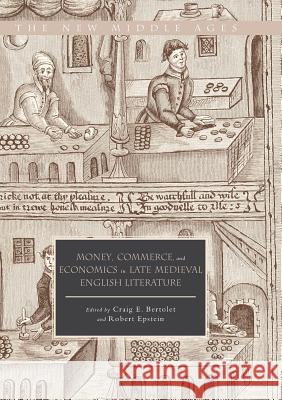Money, Commerce, and Economics in Late Medieval English Literature » książka
topmenu
Money, Commerce, and Economics in Late Medieval English Literature
ISBN-13: 9783319891187 / Angielski / Miękka / 2019 / 185 str.
Kategorie:
Kategorie BISAC:
Wydawca:
Palgrave MacMillan
Seria wydawnicza:
Język:
Angielski
ISBN-13:
9783319891187
Rok wydania:
2019
Wydanie:
Softcover Repri
Ilość stron:
185
Waga:
0.24 kg
Wymiary:
21.01 x 14.81 x 1.07
Oprawa:
Miękka
Wolumenów:
01
Dodatkowe informacje:
Wydanie ilustrowane











